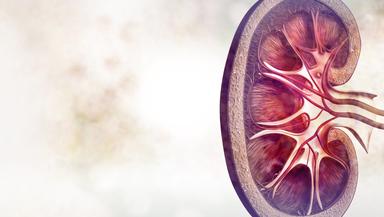Everything You Need to Know About Pancreatitis

Pancreatitis is an illness that affects the pancreas and causes inflammation. Alcohol and gallstones are the most frequent causes of pancreatitis, characterized by abdominal discomfort. The pancreas is a large gland located in the upper abdomen near the small intestine that produces digestive enzymes and hormones to aid with glucose metabolism.
Types of pancreatitis
There are mainly two types of pancreatitis. These include:
- Acute pancreatitis: An inflammation of the pancreas that strikes suddenly and usually lasts for a short time (days to weeks). In most situations, acute pancreatitis is treated effectively. Acute pancreatitis can cause severe problems such as bleeding, Pancreatic fluid accumulation, infection, jaundice, and more in severe cases.
- Chronic pancreatitis: Acute pancreatitis is an acute condition characterized by pain in the abdomen and vomiting, often after eating. Chronic pancreatitis occurs when the inflammation of the pancreas lasts for a longer amount of time, generally after recurrent episodes of acute pancreatitis. In many cases, alcohol abuse is responsible for chronic pancreatitis. However, anomalies of the pancreatic duct, drugs and hereditary pancreatitis are also the reasons in a few cases.
Symptoms of pancreatitis
Signs and symptoms differ depending on the form of pancreatitis (acute or chronic):
Symptoms of acute pancreatitis:
- Upper abdominal pain radiating to back
- Vomiting
- Altered mental status
- Breathing difficulty
Symptoms of chronic pancreatitis:
- Constant or episodic pain in upper abdomen lasting for several days
- Diarrhea
- Unintentional weight loss
- Oily, foul smelling stools
Causes of pancreatitis
Activation of digestive enzymes while they are still in the pancreas, before reaching the small intestine, leads to irritation of the pancreas cells, causing inflammation. Some of the major causes of pancreatitis include:
- Excess alcohol consumption: Digestive enzymes and fluids are generated faster than usual when a substantial amount of alcohol is consumed, causing pancreatic duct blockage.
- Gallstones: Gallstones can obstruct fluid flow through the pancreas, causing damage to it.
- Abdominal surgery: Previous abdominal surgery may lead to pancreatic injury or damage, causing pancreatitis.
- Autoimmune diseases: A condition in which your body’s own immune system attacks healthy pancreatic cells, leading to pancreatitis.
- An excessive amount of fats (triglycerides) in the blood.
- Smoking causes damage to pancreatic cells, leading to pancreatitis.
- Medication: Certain medicines, such as certain antibiotics, corticosteroids, and estrogen, can induce pancreatitis.
Other indirect causes include:
- Bacterial and viral infections
- Cystic fibrosis
- Family history of pancreatitis
- Pancreatic cancer
- High calcium levels
Treatment of pancreatitis
The first step is initial management/first-line therapy, which includes a combination of medications. If necessary, the treatment will be modified or discontinued if there are adverse effects from the medicines used.
First line treatment
- Fasting: Fasting provides a chance for the pancreas to recover from inflammation.
- Medications: Pain medication may be prescribed to relieve intense pain caused by pancreatitis.
- Intravenous (IV) fluids: Pancreatitis and fasting may lead to dehydration. Intravenous fluids are administered to prevent dehydration and weakness.
Surgery
Surgical intervention is indicated in cases of bile duct obstruction, gall stones, fluid drainage from the pancreas and removal of damaged tissue.
Others
If alcohol addiction is the causative factor of pancreatitis, alcohol rehabilitation programs may be recommended.
What Are the Symptoms of Pancreatitis?
- Pain in the Upper Abdomen That Radiates to Your Back
- Abdominal Pain Gets Worse After Eating, Especially If You Have a Lot of Fat in Your DietThe abdomen is tender to the touch.
- Fever
- Increased Heart Rate.
- Nausea/Vomiting
For any queries related to pancreatic disorders, consult our doctors at Gleneagles Hospital, Mumbai, Department of Gastroenterology.



























